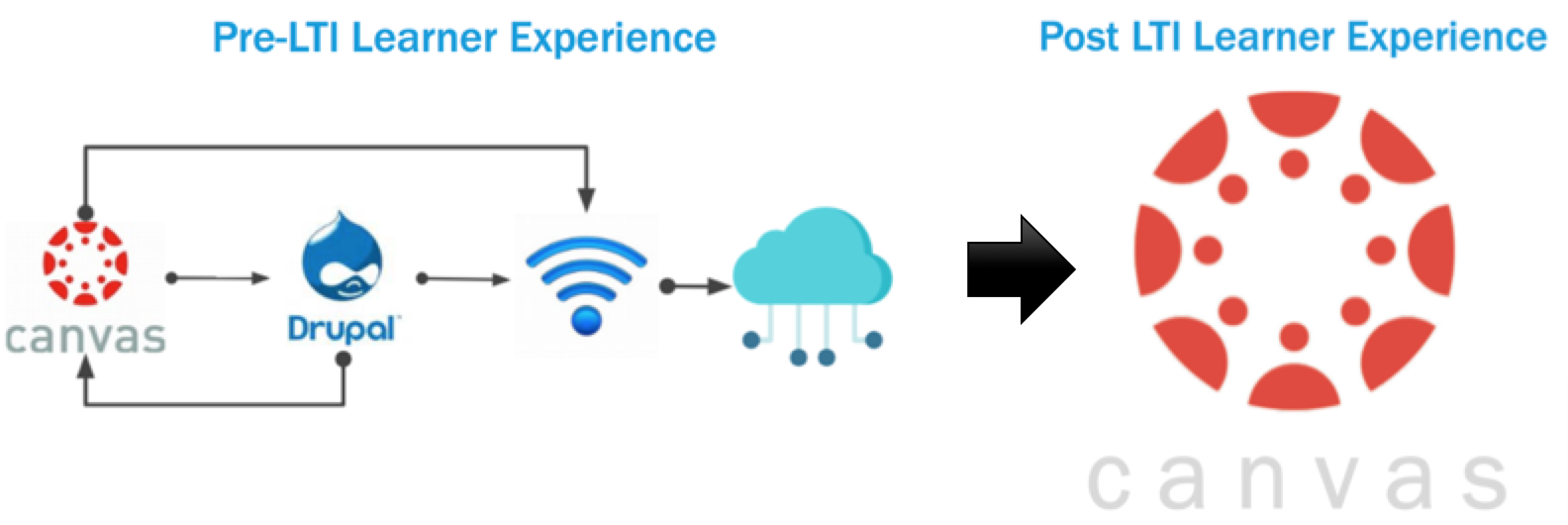
Credit: Canvas, 2019
Single-Page Display LTI
April 17th, 2019
Last month, three of my fellow learning designers and I made a presentation at Penn State's Canvas Day on a relatively new innovation that we utilize in several online courses called the Course Content Selector, which is our Single-Page Display LTI.
What is LTI and what does it do?
LTI is an abbreviation for Learning Tools Interoperability, which is a standard published by the IMS Global Learning Consortium. LTI allows programmers to integrate two separate systems to work seamlessly together, in our case Drupal, our department's Content Management System with Canvas, the University's chosen Learning Management System. If you want to learn more about how our programming team created the LTI, we can put you in contact with Tim Bracken for a technical explanation.
Why was it developed?
That is a simple question to answer, we developed the LTI to enhance our student's online learning experience and our faculty's teaching experience.
What does the Single-Page Display LTI do exactly?
Our LTI simplifies course navigation by streamlining all of the online course materials into one spot for students - Canvas. All students need to keep track of is the next button! The LTI allows content pages, files, linked websites, discussions, activities, and assessments to all flow together into one easy to follow stream. An added benefit of the LTI is that it also allows us to continue to offer our courses as Open Educational Resources (OER) without requiring duplication of effort when anything needs to be revised or fixed or updated. Our designers aren't limited in their course design because we can continue to develop our content in Drupal using everything that is available to us.
What is OER?
For anyone unaware of what OER is, Penn State’s working definition of Open Educational Resources (PSU-OER) is any type of educational materials that are available to the university community with little or no cost. It may also be the case with PSU-OER that the nature of these open materials means that students, faculty, and staff can legally and freely copy, use, adapt, and re-share them within the university community.
Tag Cloud
You can quickly search our news articles by topic using our tag cloud. Click on a term to see a list of related articles.